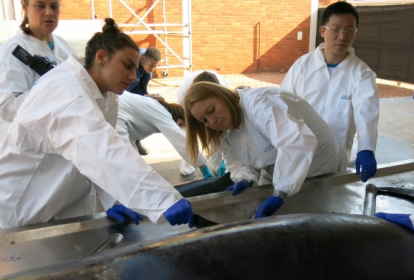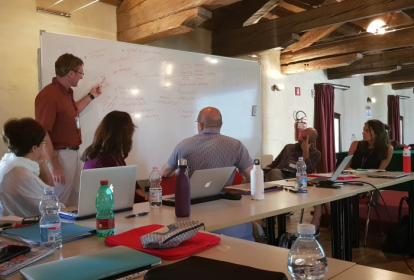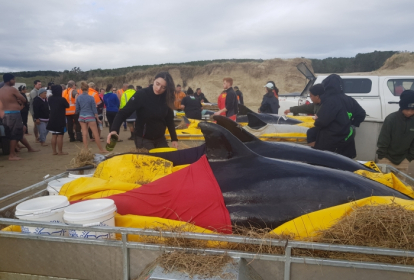The IWC Strandings Initiative was established following a multi-disciplinary expert workshop in 2016. The workshop discussed how best to develop practical guidance on handling cetacean strandings and concluded that an international Strandings Initiative should be established under the auspices of the IWC, incorporating the skills and experiences of strandings experts from a range of different countries around the world.
In addition to sharing best practice and producing globally agreed guidelines on strandings response, the workshop stressed the important role of the Strandings Initiative in collating and co-ordinating data from national strandings networks. Standardized, global data is vital to understanding the causes of cetacean stranding, and addressing those causes which are man-made.
The Strandings Initiative was launched in 2017. It is led by an expert Strandings Coordinator, advised by a multi-disciplinary Expert Panel, and overseen by a Steering Group drawn from the Commission’s Scientific and Welfare Committees.
As well as member governments, the Strandings Initiative is engaged with other intergovernmental organisations, academic institutions, regional and national strandings networks.
Training
Two training programmes are currently under development – one focusing on emergency response for live strandings and one on large-scale mass mortality events. Both training programmes will focus jointly on strandings response and strandings investigation. Up to three training workshops will be conducted each year, tailored to requests received from member governments.
Real-Time Response
The Strandings Initiative also offers real-time support and advice to teams handling live strandings and strandings investigations. In 2018, the Initiative was able to deploy regional experts and provide funding to support the Government of Argentina in responding to a mass stranding of common dolphins in Peninsula Valdes. Subject to resources, the Strandings Initiative is able to provide three such responses around the world each year.
Further Reading
- Read the 2022 Report of the Strandings Co-ordinator.
- Read the Strategic Objectives for the Strandings Initiative.
- Read the Strandings Initiative Four-Year Workplan (2021-24).
- Read the Report of the 2016 Strandings Workshop click here.
- Read about the IWC Expert Panel on Strandings.



